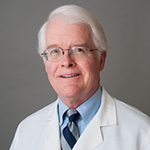By LISA EISENHAUER
The strain of the COVID-19 pandemic is not only causing emotional distress for patients and care providers, Catholic ethicists say it is also the source of moral distress because of the many constraints put in place to stop its spread.

Sotomayer
While emotional distress is a widely seen condition triggered by things like fear, frustration and grief, Dr. Claudia Sotomayor said moral distress is a separate affliction. "Moral distress is asking us to do something that is probably against our core values," she said.
Sotomayor, a clinical ethicist at the Pellegrino Center for Clinical Bioethics and an adjunct assistant professor of internal medicine at Georgetown University Medical Center, discussed specific causes of moral distress amid the pandemic and potential ways to address the condition during a webinar May 7 titled "Moral Distress on Caregivers and Patients Dying Alone." The webinar was the fourth in the series "Catholic Ethics and the challenge of COVID-19" that is being presented on consecutive Thursdays through May by CHA and Georgetown University with participation from the university's Pellegrino Center for Clinical Bioethics.

Vittone
She was joined by Sarah Vittone, a clinical bioethicist for the Pellegrino Center and an assistant professor at Georgetown School of Nursing who also works in clinical nursing administration at Suburban Hospital — Johns Hopkins Medicine in Bethesda, Maryland, and Dr. G. Kevin Donovan, a professor of pediatrics at Georgetown University and director of the Pellegrino Center. Donovan served as moderator.
Longing for the sacraments
Among the potential causes of moral distress that Sotomayor identified for Catholic patients who have COVID-19 is the inability because of quarantines and visitation restrictions to have direct contact with a priest who can offer absolution in confession and the final anointing and prayers of extreme unction. Another potential example of moral distress Sotomayor shared is a female patient who for cultural reasons normally communicates with men only through her husband but who is forced, because she or her husband is in isolation, to converse with male doctors.

Donovan
Moral distress also afflicts the families of patients, especially those who are dying, she said, because the constraints around the care of and access to these patients can interfere with the usual way people respond by drawing closer to offer comfort when a loved one is very sick or actively dying.
"I think dying is a cultural process and right now we are not seeing this. We are dying alone," Sotomayor said. "Dying alone is fearful. I think fear of dying alone is nearly universal. In each culture, death is associated with rituals, with customs, that help not only the person that is leaving us but help us to grieve."
The mental distress of patients in isolation weighs on providers too. "When our patients are in distress, either emotional or moral, it is affecting our medical personnel," Sotomayor said. "If our medical personnel get distressed, then it is going to affect the outcome of our patient care."
Donovan said ethicists must stay alert for signs of moral distress. "Although we can easily recognize the emotional distress that everybody's feeling to some extent, the idea of moral distress is really within the purview of an ethicist and can come up within the context of ethics discussion and we should be aware of it with our patients and their families as well as the medical professionals," he said.
'Existential suffering'
Vittone called the depth and breadth of the distress caused by the pandemic for health care providers "completely unexpected." The constraints that hospitals have had to put in place to contain the virus can present obstacles to what in normal times would be basic accommodations for a dying patient and their family, such as a chance to say final goodbyes.
For care providers, the constraints "can lead to existential suffering, such as a feeling of isolation when you can't do what you need to do," she said. "It can lead to a feeling of worthlessness, helplessness and even compassion fatigue."
Vittone said moral distress can lead to moral injury for care providers who have to set aside their values and commitment to compassionate professionalism. "A moral injury really can lead to a feeling of helplessness, when you can't practice in the way that you want to," she said.
In such stressful times, Vittone said it is important for Catholic care providers to remember the foundations of Catholic identity, including respect for patients' dignity, holistic care, justice and prioritizing the needs of the poor. "When we're distressed, we have to fall back on what we know," she said. "We have to focus on what we are doing, what are we doing that is good."
She also said providers facing moral distress should have access to bioethicists, who can listen and offer consultations about how to build moral resilience and preserve moral integrity. In the end, Vittone said, the keys to weathering the distress are to be faithful, to have hope, to find connections and to care for yourself.
The next webinar in the series will be at 1 p.m. (ET) on Thursday. The topic will be "Pandemic Public Surveillance — Issues of Prevention, Protection, and Privacy."
» View the recording
» Download the Presentation
Prior coverage of this webinar series
Resuscitation considerations go beyond patients amid pandemic, Catholic ethicists say
Putting workers first for some treatments amid pandemic is justifiable, ethicists say
Crash course: Sully offers inspiration for applying organizational ethics in a pandemic